The History of the AS/400 (IBM i)
Discover how ACOM Systems leverages the robust AS/400 platform to deliver cutting-edge software solutions, enhancing business efficiency and security.
The Journey of AS/400
The Beginning
The IBM System i, originally known as the AS/400, is the evolution of IBM’s System/38 architecture, first announced in 1978 and delivered in 1979. Unlike its predecessor, the AS/400 removed capability-based addressing and introduced source compatibility with the System/36, merging the best of both systems produced at IBM’s Rochester plant.
The System/36 was a huge success in the mini-computer market, but its architecture had reached its limits. IBM’s AS/400, developed under the code names Silverlake and Olympic, launched in 1988 with the tagline “Best of Both Worlds,” and it has been continually enhanced ever since.
The AS/400 operating system, OS/400, stood out because its developers largely lacked UNIX experience, giving it a distinctive design. As noted by Dr. Frank Soltis, the chief architect, this fundamental difference influenced the platform’s unique strengths.
Notably, the AS/400 was among the first general-purpose systems to achieve a C2 security rating from the NSA, further establishing its reputation for security and robustness.
Evolving Technology
In 1995, IBM transitioned the AS/400 from a 48-bit to a 64-bit architecture. This move required programs to be “observable,” meaning debug information needed to remain intact — a challenge for third-party applications without source code.
IBM has continued to evolve the platform:
2000: Rebranded as iSeries under the e-Server family.
2004: Introduced i5 servers with POWER5 processors, setting the stage for future 128-bit capabilities.
2008: V6R1 release brought another major “refresh,” similar to the 1995 transition.
Since IBM’s strategic shift in the early 1990s under Lou Gerstner, major internal architecture overhauls like the AS/400 have become rare, replaced by acquisitions and open-source innovations (e.g., Linux support). Interestingly, Microsoft’s systems once heavily depended on the AS/400 — a testament to its importance in business computing.
Key Innovations
Logical Partitioning (LPAR)
Borrowed from IBM’s mainframe technology, LPAR enables running multiple operating systems (IBM i, AIX, Linux) simultaneously on a single machine. Each OS operates within its isolated environment, ensuring stability and flexibility.
Integrated Database: DB2
AS/400 systems come with DB2 integrated at the operating system level — a game-changer for businesses needing scalable, reliable data management. Other built-in features include:
Menu-driven interface
Multi-user support
Non-programmable (5250) terminals and printers
Built-in web, security, and communications services
Common Client-Server Support
The AS/400 supports standards like ODBC and JDBC, enabling seamless integration with client applications written in Java, .NET, and other languages.
Programming on AS/400
The AS/400 is legendary for its programming flexibility:
Supported languages: RPG, COBOL, C, C++, Java, Python, SQL, PHP, REXX, and more.
Tools: Synon, CA Plex, LANSA, IBM Rational Business Developer, and others.
The Integrated Language Environment (ILE) allows developers to combine different languages like RPG, COBOL, and C into a single executable, boosting efficiency and code reuse.
Developers appreciate the Control Language (CL) commands, built around intuitive, uniform 3-letter abbreviations, e.g.:
CRTUSRPRF(Create User Profile)WRKACTJOB(Work with Active Jobs)PWRDWNSYS(Power Down System)
Modern Perception: IBM i Today
Despite multiple rebrands (AS/400 → iSeries → System i → IBM i), the platform remains a modern powerhouse — not a relic. It continues to play a critical role in the operations of top organizations around the world.
Today’s IBM i offers:
Native cloud, mobile, and web capabilities
Continued enhancements to DB2 and security
Integration with open-source technologies
Robust backward compatibility
For ACOM Systems customers, the IBM i remains a vital part of their infrastructure — providing a modern, secure, and flexible computing platform that supports digital transformation initiatives.
Enhancing Business Operations with AS/400 Solutions
ACOM Systems leverages IBM i AS/400 to provide software solutions that significantly improve business efficiency and facilitate growth. Our tailored solutions streamline operations and maximize productivity.
Increase in operational efficiency with our IBM i AS/400 solutions.
Reduction in processing time using ACOM Systems’ IBM i AS/400 software.


